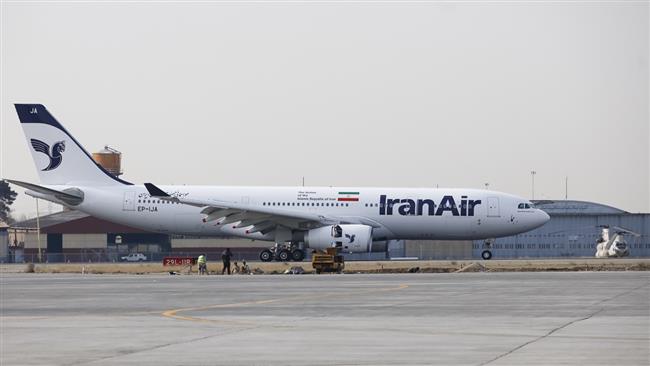In a sign of trouble for Iran’s economic recovery, Boeing has cancelled the delivery of the first of 80 passenger jets to Tehran, with a delay until at least spring 2018.
Iranian officials had said that the Boeing 777-300ER would arrive this summer, at a discounted price after Turkish Airlines withdrew its order for it. But Farhad Parvaresh, the head of Iran Air, said on Wednesday that the arrangement was suspended.
“We welcomed [the] proposal and started the due technical and commercial studies,” Parvaresh said. “However, when we were almost certain that we wanted the plane, it was no longer available….We have currently stopped our negotiations in absence of the plane.”
Parvaresh denied that Iran Air cancelled the delivery because of financial difficulties.
The executive had said two weeks ago that Boeing officials were in Tehran for talks: “If Iran’s conditions are met, this plane would be most probably delivered to Iran within the next 45 days.”
In December, Iran Air and Boeing signed a deal for 80 passenger jets, worth $16.6 billion, and the US manufacturer also signed a $3 billion deal for 30 planes to Iran’s Aseman Airlines.
Those agreements followed a January 2016 announcement of the supply of 118 jets by France’s Airbus, at a cost of $25 billion.
However, amid ongoing US financial restrictions, Iran has struggled to complete the funding and credit arrangements for the purchases. Airbus has only delivered three smaller passenger planes so far, and the deal has been officially scaled back to 100 aircraft.
While the Iranian economy has rebounded under the Rouhani Government, with a sharp drop in inflation and a 40% recovery in oil exports, Iran is still struggling to attract essential foreign trade and investment, in part because of the ongoing US sanctions and in part because of internal conflicts and issues over Iran’s financial and banking sector.
An Iranian Petroleum Contract for necessary foreign investment to develop oilfields has been held up for months because of internal wrangling and negotiation over details. Other large deals with European firms have been hindered by fears that the US sanctions could punish any firm completing arrangements.

